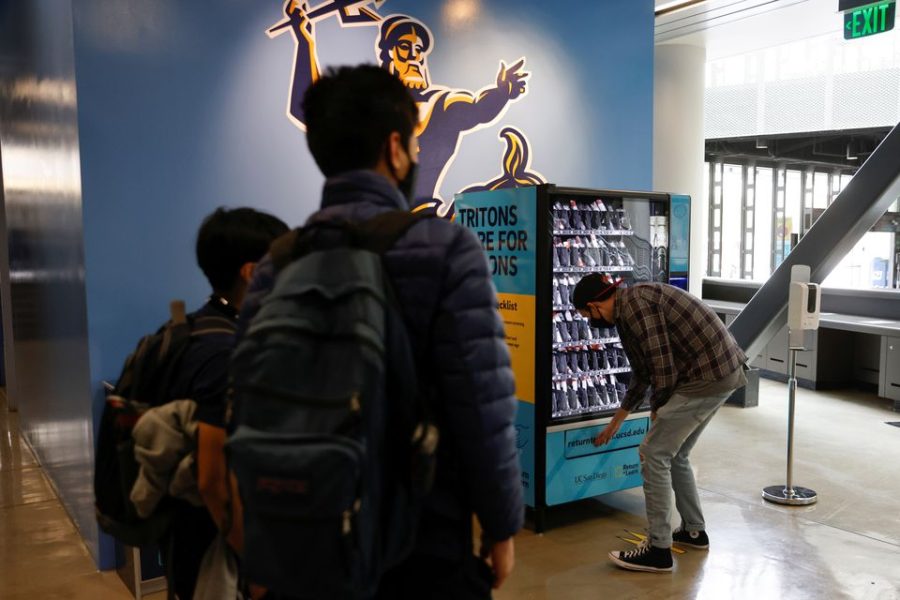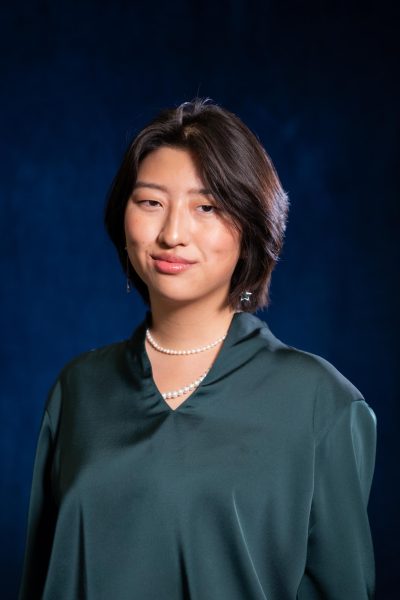With the advent of a new school year at UC San Diego, thousands of students returned to in-person classes and events amidst continuing concerns about COVID-19 and rising cases of monkeypox. UCSD has made several updates and changes to campus policies to address these concerns regarding in-person education and on-campus living.
Firstly, UC San Diego Health and Student Health Services continue to administer vaccines, including the two booster vaccines from Pfizer and Moderna. According to an email from the Office of the Chancellor, sent on Sept. 9, students and employees can schedule appointments at the La Jolla Medical Center drive-up location at 9460 Athena Circle and at the Recreation Gym near the Old Student Center on campus.
Additionally, UCSD is continuing a mask mandate in indoor classrooms, instructional settings, clinical settings, and on Triton/university transportation. Students are also required, regardless of vaccination status, to wear masks inside dorms and other residence halls other than their own bedroom and in the shower. Students must also mask in hallways, common areas, and lobbies. However, there are some exceptions; people with hearing impairments or people who are speaking to a person who is hearing impaired are not required to wear a mask if it is necessary to show mouth movement.
Notably, UCSD is one of the few UC campuses requiring masks. Other UCs, such as UC Berkeley and UCLA, only recommend masking in indoor spaces, with some exceptions such as medical facilities.
Meetings and special events on campus now have new policies detailed on the Return to Learn website. UCSD events are still on a yellow status, which means that masking, proof of vaccination, and testing are still encouraged. While masking is still highly recommended, it is no longer required at events. However, event hosts are recommended to offer mask distribution. Additionally, formal approval from a vice chancellor is no longer required to host an on-campus event, but an Events and Activities Intake form (for department or unit events) or a Triton Activity Planner (for student organization events) is still required. At events, students, staff, and faculty no longer need to show their daily symptom checker, and event hosts no longer need to encourage guests to test 24 hours before the event.
On the other hand, UCSD has not taken an official stance or offered guidelines on monkeypox. Even though San Diego has reported that local monkeypox cases have been decreasing and the California Department of Public Health has reported that general public risk is low, both encourage individuals to remain cautious. Following these announcements, UCSD Student Health Services (SHS) released an official website on monkeypox.
According to SHS, the county has granted UCSD Health a limited amount of JYNNEOS vaccines. These vaccines are meant to help to reduce the spread of monkeypox and help those who have been infected or exposed. A portion of these vaccines will be reserved for qualifying students. The current population that qualifies for this vaccine is detailed below:
- People with more than one sexual partner in the past 14 days known to have monkeypox
- Gay, transgender, or bisexual-identifying males, or otherwise male who has sex with other men, who have had more than one sexual partner in the past 14 days, or has had a sexually transmitted infection diagnosis in the past 3 months
- People receiving HIV PrEP treatment
In addition, researchers at UCSD have expanded the program monitoring traces of COVID in wastewater to also detect traces of monkeypox. Starting in May, researchers began experimenting with the process, testing wastewater from the Point Loma treatment plant. They detected their first positive test on July 10. For the researchers, the add-on of monitoring monkeypox was relatively simple.
“All we had to do was to change the qPCR primers from ones that match the SARS-CoV-2 genome to ones that match the monkeypox genome,” explained Center for Microbiome Innovation Director Rob Knight in an email to The UCSD Guardian. “In general, it is easy to adapt the system to look for new pathogens, because we designed it that way.”
The program works by detecting the number of copies per liter that have the monkeypox genome using probes very specific to that genome, Knight elaborated.
However, the program is currently not ongoing. Knight explained that his team performed a one-off pilot run to determine the capability, and will only execute a plan with communication to students once there is a demand.
“If there is demand from Student Health, CST, and the Chancellor’s Cabinet, and the cost/benefit analysis determines that monitoring is warranted, we will develop a communications plan likely using the same infrastructure as our COVID-19 wastewater system,” Knight stated.
Both COVID and Monkeypox are developing stories that The Guardian will continue to monitor. For more information on COVID, please visit the CDC website and the Return to Learn website. For more information on Monkeypox, please visit the CDC website as well as the Student Health Services website.
Photo courtesy of Reuters
















